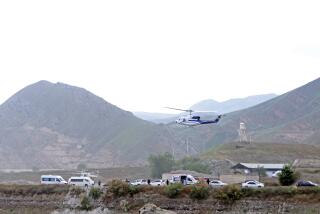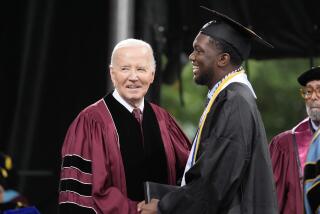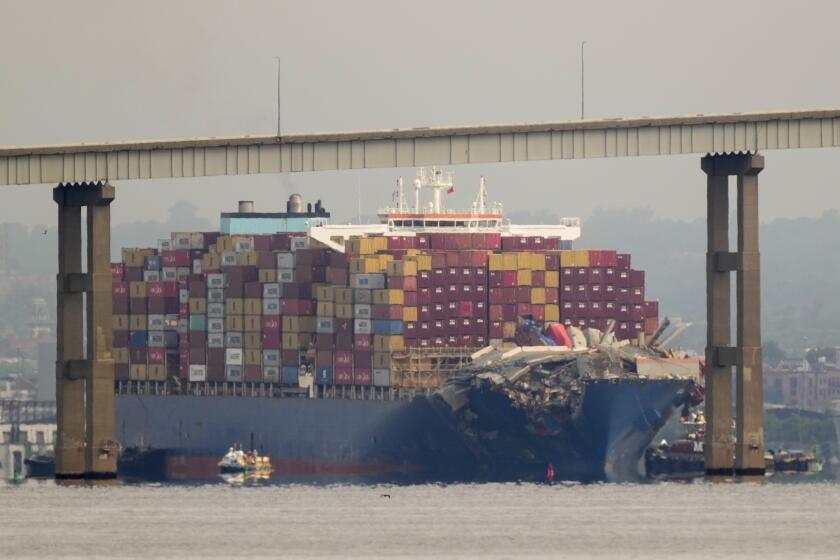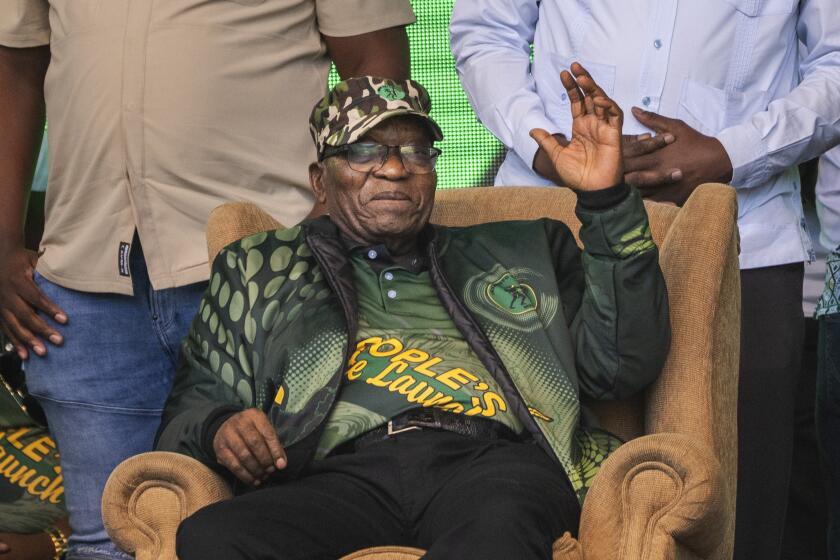U.S. Should Offer a Deal to N. Korea
Every day, North Korea increases its nuclear capabilities -- and the price it will demand to give them up. Yet the White House continues to insist that Pyongyang accept all U.S. objectives before any real deal can be offered to the North. That’s a mistake.
Facing no penalties for defiance or rewards for compliance, Pyongyang has no reason to back down. And hoping the regime will implode before it triggers a nuclear disaster gambles recklessly with global security.
A decade ago, the United States faced a similar problem. By 1993, North Korea could produce and separate its own plutonium and was building two larger reactors that could have lifted its bomb-making capacity to industrial scale. It then declared that it would withdraw from the Nuclear Nonproliferation Treaty.
Then, as now, North Korea had a brutal, failing regime. Then, as now, the U.S. faced no good options: allow North Korea to build nuclear weapons but try to deter their use; use military force against its nuclear facilities; or seek a diplomatic solution with an untrustworthy regime.
Unlike deterrence, diplomacy offered a chance to slow Pyongyang’s nuclear program and was needed to build international support for stronger measures, including force. So the U.S. engaged in a broad multilateral effort, including direct negotiations with North Korea.
After 18 months of diplomacy, increased military muscle in South Korea, threats of U.N. sanctions and the intervention of former President Carter, North Korea froze its plutonium production program and eventually agreed to dismantle it, all under monitoring by the International Atomic Energy Agency. Without that freeze, Pyongyang would by now have amassed an arsenal of nearly 100 nuclear warheads.
Of course, the story didn’t have a happy ending. North Korea cheated on its pledges by secretly obtaining uranium enrichment technology. When confronted in 2002 by the U.S., it kicked out the inspectors and later abandoned the nonproliferation treaty. Pyongyang has boasted that it has reprocessed all 8,000 of its spent fuel rods; its erstwhile supplier, Pakistani scientist Abdul Qadeer Khan, claims to have seen North Korean nuclear weapons.
So why should we offer Pyongyang another deal? Can diplomacy now advance U.S. interests? Three lessons from the last Korean nuclear crisis might help find a way.
* Go after the bomb material. Sept. 11 showed that Cold War doctrines of containment and deterrence won’t work. U.S. diplomats must go after the North Korean program urgently, not just watch it crank out bomb-grade material as they negotiate about how to negotiate.
* Present a clear choice. We should offer the North security assurances and energy assistance if it verifiably gives up its nuclear program under more ambitious monitoring than in 1994. As with Libya, showing a path to improved relations could prove pivotal. We should also tell the North that failure to accept that offer will result in international sanctions, and enlist the Chinese and other key players to help enforce them.
* Design a package that leaves us better off, even if Pyongyang cheats. No one can be confident that North Korea won’t cheat, but the 1994 deal did buy a verified, eight-year moratorium on plutonium production. The point is not to trust but to verify while ensuring that Pyongyang never gets what it really wants until we do.
Continued diplomatic wheel-spinning just buys Pyongyang time to build more bombs. As President Bush has said, we cannot remain idle while dangers gather.
Daniel Poneman and Robert Gallucci served in the administrations of George H.W. Bush and Bill Clinton, with responsibilities for U.S. nuclear nonproliferation policy. They are coauthors of “Going Critical: The First North Korean Nuclear Crisis” (Brookings, 2004).
More to Read
Start your day right
Sign up for Essential California for news, features and recommendations from the L.A. Times and beyond in your inbox six days a week.
You may occasionally receive promotional content from the Los Angeles Times.






